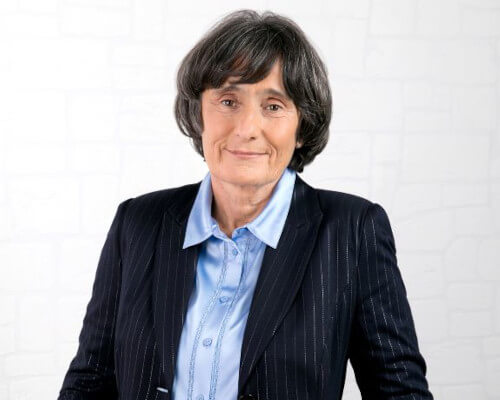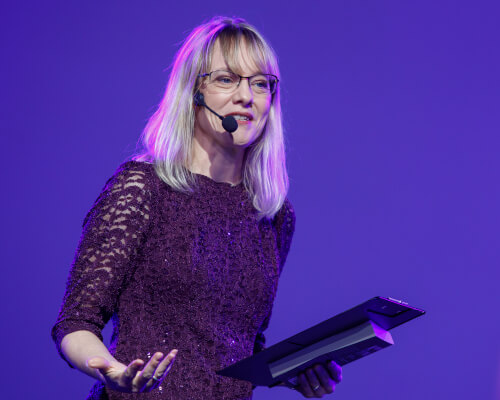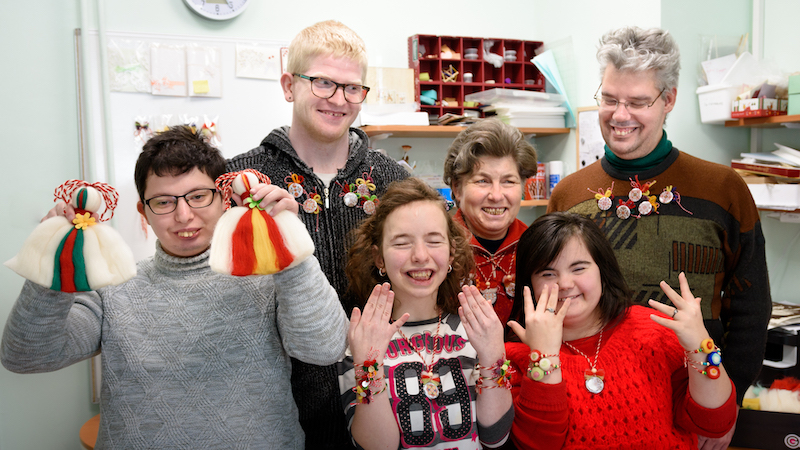
The Nadezhda bookstore in Plovdiv’s Trakia neighborhood is a special place. Everything from the positive name—nadezhda in Bulgarian means hope—to the welcoming interior and friendly staff is designed to make you feel at home. Inside you are not just a customer but a dear guest who is greeted by the biggest smiles you have seen and offered a small souvenir with a message—a small token of gratitude for your patronage.
In addition to the standard bookstore fare of bestselling books in different genres, popular periodicals, and a wide selection of stationery, Nadezhda customers can purchase beautifully crafted souvenirs, cards, and seasonal gifts. As an added bonus, they can actually see the cards and gifts being made by the nimble-fingered craftsmen and -women at the bookstore’s workshop next door.
Beautiful as the handicrafts are, the gift makers and bookstore staff are what gives the place its unique character. They are individuals with intellectual disabilities who are living their dream of having jobs that make them feel useful and people who appreciate their work. A first job for most of them, employment at Nadezhda allows them to contribute to their families’ scant budgets and make their own purchasing decisions for the very first time.
“When we didn’t have much money, my [salary] was spent on food,” says Mitko, one of the bookstore employees, proud that he can help his family.
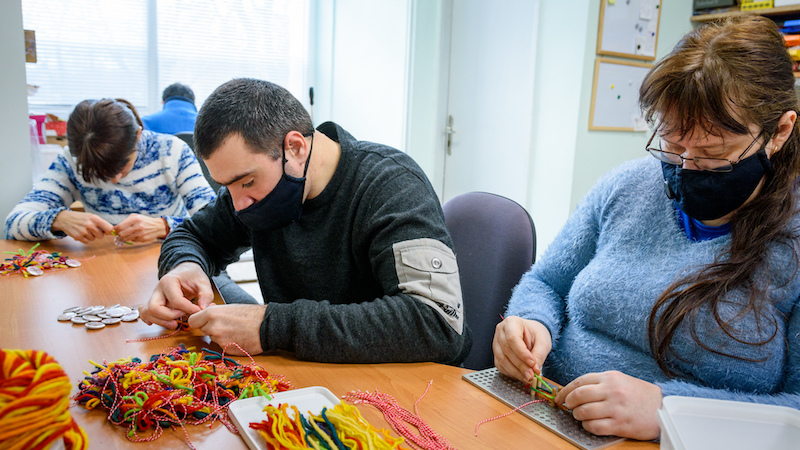
The Nadezhda bookstore and workshop are run by the Parallel World Foundation, an organization of parents with disabled and special-needs children. Founded in 2010, Parallel World first started offering educational and support services such as counseling to children and their families.
Entrepreneurship wasn’t something that Parallel World’s founders would have initially considered a natural fit for their type of organization. But it was. Over the years, they built a solid track record of developing unorthodox solutions to problems. Plus, their children were growing up, and their full inclusion in society required that they do what their peers did: socializing and having jobs. Entrepreneurship was an answer to both.
Back when Parallel World’s core team first met in the early 2000s, the state-supported special-needs programs their children attended relied on outdated thinking that discouraged learning and deepened the kids’ isolation and dependence on their caregivers. Progress was slow or nonexistent, and this was attributed to the children’s disabilities rather than to the programs’ inadequacy. The parents’ response to a world that often told them “it’s impossible,” “he’ll never learn to read and write,” and “a child with that kind of disability can never finish school” was to form Parallel World in order to give their children the best chance at life they could get.
“We knew something had to change,” says Kremena Stoyanova, a founding member and chairwoman of Parallel World and a parent of two, including a special-needs son.
But it was a parallel world only in name. The founders firmly believe that “real life is the best environment for these kids.” Their inclusive approach and challenging regimen of competitive sports programs, specialized counseling, and age- and disability-appropriate skills training soon yielded results: all participants experienced noticeable improvement in their behavior and skills and became more independent over time.
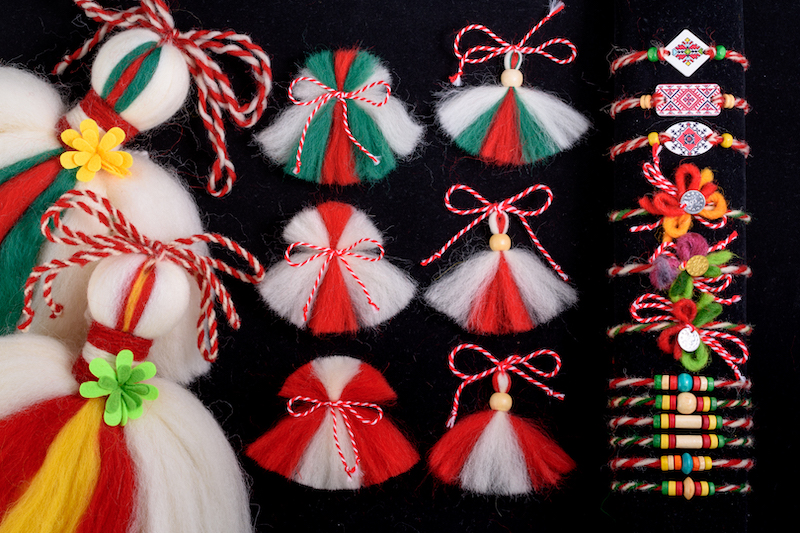
Once written off as “unable to learn,” Kremena’s son Lachezar today is three months’ shy of finishing high school, where he studies entrepreneurship and accounting. He hopes to go on to study at university, and he has his heart set on acting. As a self-advocate for the rights of people with intellectual disabilities, he has spoken at a number of national and international events.
Parallel World started the Nadezhda bookstore and workshop in 2018 to give their now-grown-up dependents the chance to apply the acquired skills and socialize with a variety of people. Although they already employ 15 individuals with disabilities and five mothers, which is way more staff than the business actually needs, Kremena and the rest of the Parallel World team are constantly on the lookout for opportunities to expand their trainings and engage more people.
To that end, the organization signed up for the Entrepreneurship for Nonprofits training program of the Bulgarian Center for Not-for-profit Law (BCNL) in 2019, and its idea for a sewing course and the manufacturing of eco-friendly shopping bags was among the projects selected for funding. The program equips nonprofits with the skills to run businesses, assists them through their launch and early development, and provides ongoing mentorship. Social businesses can then sell their work through BCNL’s online platform for gifts with a cause, DarPazar.
“Entrepreneurship is a sustainable way [for NGOs] to develop their activities,” says Stanislav Sirakov, an investor and general partner at venture capital firm LAUNCHub Ventures, who helped develop BCNL’s entrepreneurship program and has mentored dozens of social businesses since its launch ten years ago.
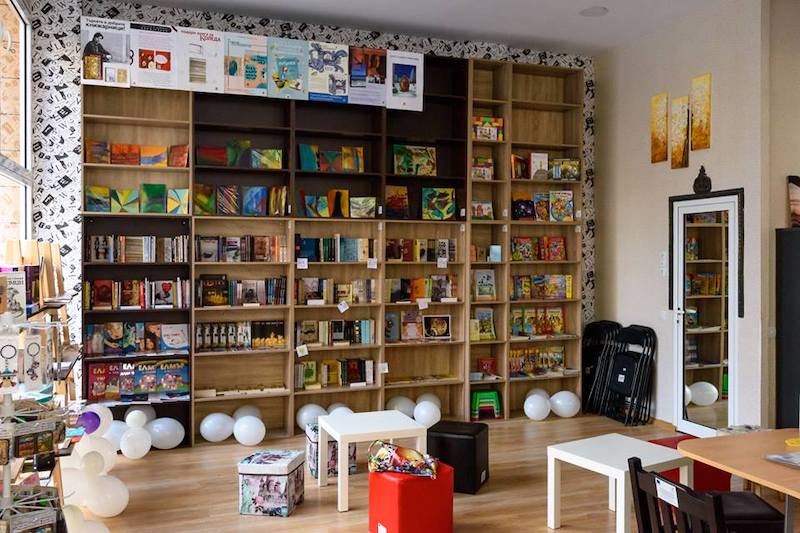
Because people vote with their wallets, developing a great product or service is a sure way to get attention for your cause, he thinks. If people love your product, they will listen more carefully to what you have to say about the rights of people with disabilities and the need to protect Bulgaria’s water resources. The Biodiversity Foundation’s range of excellent sea salt products and natural cosmetics, WWF Bulgaria’s fun boardgame WheelVille, and the first-rate catering offered by Maria’s World Foundation, another organization supporting the social and economic inclusion of adults with intellectual disabilities, are all helping advance these organizations’ missions.
“Entrepreneurship helped [Parallel World] and its team develop their thinking and realize that a business is more than just the sale of products. It is a new and different way of telling the stories of their youth and showcasing their abilities in a more sustainable way,” says BCNL program director Pavleta Aleksieva.
Parallel World’s work has certainly raised awareness of the challenges experienced by people with intellectual disabilities, but this is nothing to what it does for the men and women directly benefiting from its education and employment programs. “[Having a job] gives them a reason to wake up in the morning,” Kremena says.
You can’t ask for more enthusiastic and committed employees. During downtimes, they keep asking how else they can help. Every card and souvenir is crafted with great care, and Nadezhda’s customer service is unsurpassed. Some customers are so pleased with the experience they will only buy from them and will wait for a few days to get a bestselling title from Nadezhda rather than purchase it on publication day from one of the larger bookstores in town.
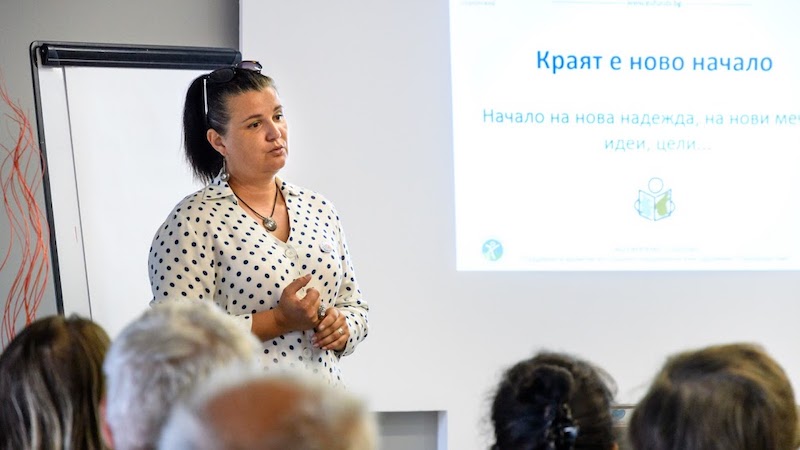
Even so, the bookstore doesn’t actually make money. Months when it breaks even are so unusual that they are considered profitable. “What we gain cannot be quantified,” Kremena says.
They appreciate every purchase, yet more important still is personal contact with customers. “They love hearing that they are liked,” Kremena says, referring to Nadezhda’s team of industrious bookstore attendants and gift makers.
So, next time you are in town, pay them a visit. The Nadezhda bookstore is located in Plovdiv’s Trakia neighborhood, apartment building 15, entrance V (B in Bulgarian).
Until then, shop for Nadezhda’s beautiful martenitsas and other gifts online at DarPazar.
DarPazar is an initiative of the Bulgarian Center for Not-for-Profit Law (BCNL) and business management consultancy Accenture Bulgaria. A longtime grantee of the America for Bulgaria Foundation, BCNL works to empower disadvantaged communities through advocacy and entrepreneurship.
